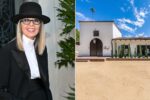With Bonfire Night approaching, GP partner and trainer Dr Tim Mercer, working with Opera Beds, is reminding families to take extra care of older adults living with dementia.
“Bonfire Night can be an unsettling time for older adults, especially those living with dementia,” he explains. “The loud, unpredictable noises, bright flashes and changes to routine can easily trigger confusion, anxiety or agitation.”
Dr Mercer adds that fireworks can cause sensory overload, heightening restlessness or disturbing sleep. “For some, the sensory overload caused by fireworks can be overwhelming, while others may experience distress linked to memories or associations from past experiences. Even within the home, the disruption can heighten restlessness or affect sleep, making it important to create a calm, reassuring environment.”
To help, Dr Mercer has shared six practical ways to make Bonfire Night calmer and more comfortable for people living with dementia.
Preparing ahead of time
“Let your loved one know about the upcoming event a few days ahead, by using simple, reassuring language, for example ‘On Wednesday there will be fireworks outside and we’ll watch them from a safe place together.’ This gives time to emotionally prepare and reduces surprise,” he says.
It can also help to speak with neighbours about their plans, as knowing when fireworks will start gives families time to prepare and limit unexpected distress.
Creating a calm indoor space
“Designate a quiet room in the home as a refuge during the fireworks. Close windows and curtains early, use soft lighting, play calming ambient sounds such as gentle rain or low-volume instrumental music, and position a comfortable chair for easy access. The goal is to buffer visual and auditory stimulation.”
Dr Mercer suggests adding familiar objects or photos to make the space feel safe and recognisable.
Using gentle sound masking
“Introduce masking noise (white noise or a fan, for example) to reduce the impact of sudden bangs. Start early so it becomes familiar, not jarring. This can help the brain filter out startling noises and maintain a sense of calm.”
Ensuring comfort and security
“If your loved one prefers to rest during the evening, ensure their adjustable bed or chair provides maximum comfort and stability. Slightly elevate the head to support breathing, add extra cushions or side supports to ease restlessness and keep a blanket within reach for warmth. As stress and noise can heighten physical discomfort, a supportive setup can provide a sense of calm and help ease the effects of sensory overload.”
Offering quieter alternatives
“If an event feels overwhelming, find calmer ways to mark the occasion. Watching displays on TV at a comfortable volume, using LED sparklers or soft light displays at home, or enjoying familiar snacks and conversation can help create positive, low-stress experiences. These alternatives allow participation without the distress of loud sounds or large crowds.”
Monitoring and reassurance
“During the evening, check in regularly as even subtle signs of distress (pacing, agitation, confusion) may indicate it’s time to move to the calm room or pause any activity. Use warm, reassuring language, such as ‘you’re safe’, and physical comfort like a reassuring touch or hug to ground them.”
Dr Mercer concludes: “Fireworks aren’t for everyone and if loud noises or bright flashes cause distress, focus instead on quieter, comforting activities you can enjoy together at home. If you do decide to attend a display, choose a professionally run, low-noise event that follows safety regulations and allows for a quick, easy exit if needed.
“Keep in mind that people with dementia may feel the cold more than others or struggle to express discomfort, so always encourage them to wear warm layers. Soft earplugs or ear defenders can also help reduce overstimulation. Finally, remember that fireworks aren’t limited to Bonfire Night, as similar celebrations can happen around New Year and Christmas, so preparing in advance for these occasions can help ensure your loved one feels calm, safe and included.”






